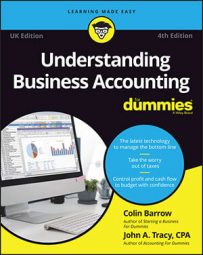Business managers, creditors, and investors read financial reports because these reports provide information regarding how the business is doing and where it stands financially. Indeed, these accounting reports are the only source of this information.
The top-level managers of a business, in reviewing the annual financial report before releasing it outside the business, should keep in mind that a financial report is designed to answer certain basic financial questions:
Is the business making a profit or suffering a loss, and how much?
How do assets stack up against liabilities?
Where did the business get its capital, and is it making good use of the money?
What is the cash flow from the profit or loss for the period?
Did the business reinvest all its profit or distribute some of the profit to owners?
Does the business have enough capital for future growth?
People read a financial report like a road map — to point the way and check how the trip is going. Managing and putting money in a business is a financial journey. A manager is like the driver and must pay attention to all the road signs; investors and lenders are like the passengers who watch the same road signs. Some of the most important road signs are the ratios between sales revenue and expenses and their related assets and liabilities in the balance sheet.
In short, the purpose of financial reporting is to deliver important information to the lenders and shareowners of the business that they need and are entitled to receive. Financial reporting is part of the essential contract between a business and its lenders and investors. This contract can be stated in a few words: Give us your money, and we’ll give you the information you need to know regarding how we’re doing with your money.
Financial reporting is governed by statutory and common law, and it should be done according to ethical standards. Unfortunately, financial reporting sometimes falls short of both legal and ethical standards.
Businesses assume that the readers of the financial statements and other information in their financial reports are fairly knowledgeable about business and finance in general, and understand basic accounting terminology and measurement methods in particular. Financial reporting standards and practices, in other words, take a lot for granted about readers of financial reports. Don’t expect to find friendly hand holding and helpful explanations in financial reports.

